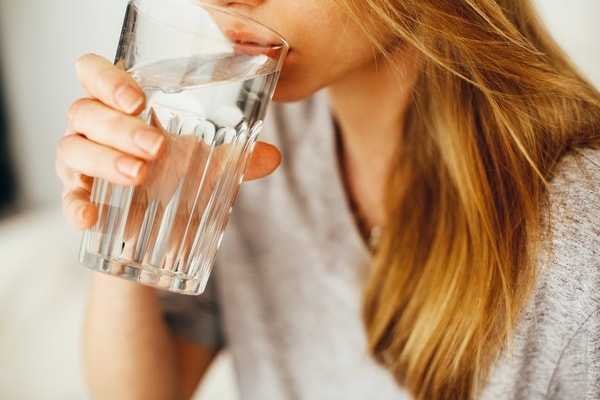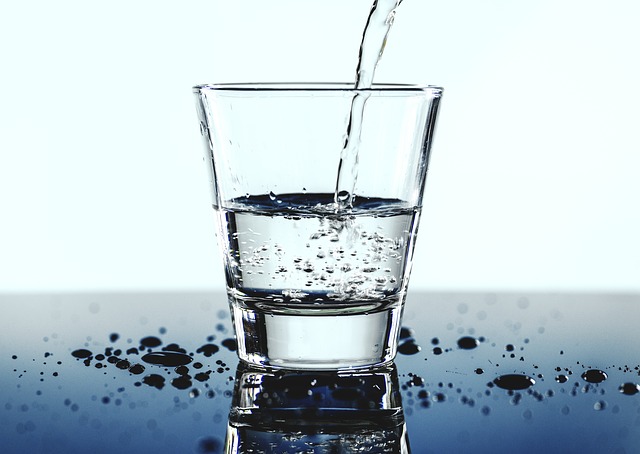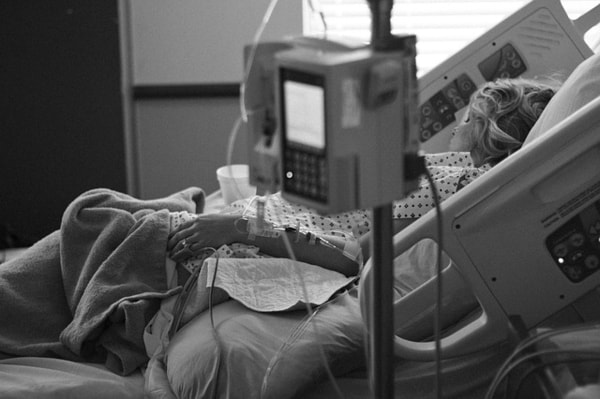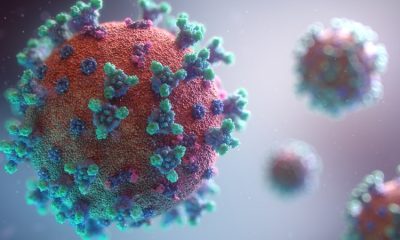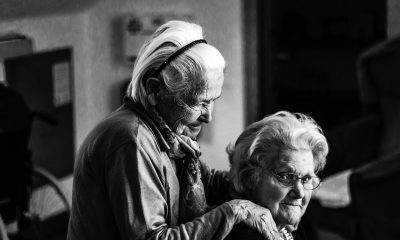What is Dehydration?
Dehydration is the most common fluid problem among the elderly. According to the Health Care Financing Administration, dehydration was the 10th most common problem in elderly that leads to hospitalization.
The body of a young adult is 60 percent water. But as we grow old, our water percentage increases, reaching levels of up to 70 percent. What this means is that as we grow old our bodies require even more water. Ironically, however, we lower our water intake as we age because of a number of reasons. The result of this? Dehydration.
This is what Mayo Clinic describes as dehydration:
“Dehydration occurs when you use or lose more fluid than you take in, and your body doesn’t have enough water and other fluids to carry out its normal functions. If you don’t replace lost fluids, you will get dehydrated.
Anyone may become dehydrated, but the condition is especially dangerous for young children and older adults.”
Dehydration is problematic because it is hard to detect. It even harder to detect in seniors living alone because there is no one to check their water intake. The physiological changes that accompany old age also play a part in dehydration. Medications and other illnesses only make dehydration more severe.
Causes of Dehydration
The main cause of dehydration is not drinking enough water but there are additional factors that can influence the feelings of thirst and water retention. Factors include:
1. Age-Related Factors
As the human body ages, various bodily functions are limited which can cause dehydration. Some of those changes include:
- Body Water: As we grow older, the amount of water our bodies can hold decreases. This increases the likelihood of dehydration.
- Sense of Thirst: Elderly people experience less thirst for water. This is an extension age-related decrease in appetite or anorexia of aging. The end result is that the elderly do not feel dehydrated even when they are.
- Kidney Function: Seniors have an increased chance of kidney related diseases as their kidney functions decrease. As the body retains less water, seniors find themselves visiting the washroom more often.
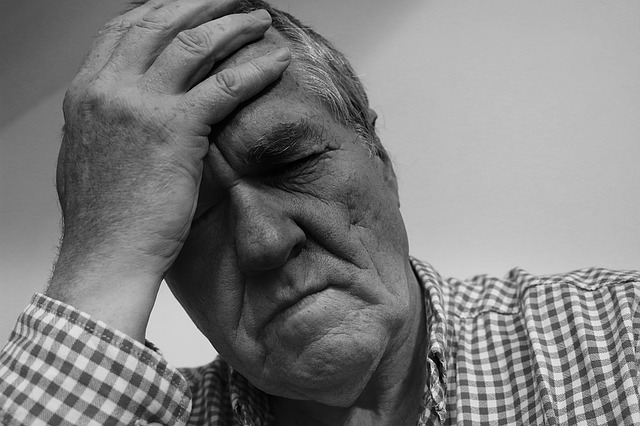
2. Health Conditions
Diarrhea is one of the most common health conditions that can lead to severe levels of dehydration and in some cases, death. The body’s large intestines are unable to extract water from the food we consume (a lot of water comes from the food we eat) and at the same time, we lose a lot of water through excretion.
Other illnesses like heart diseases and diabetes can also affect the body’s retention of water. Patients with diabetes can lose a lot of water through urination.
Neurological disorders and strokes affect the hypothalamus and the pituitary gland’s functions, which influences thirst sensation and fluid regulation.
Medications used to treat these health conditions can also lead to problems like sweating, urination, and a decreased sense of thirst. Diuretics like the ones found in BUMAX and LASIX can lead to decreased ability to retain liquid.
Excess use of laxatives used to treat constipation can also trigger diarrhea which can lead to acute dehydration.
3. Barriers to Hydration
Barriers refer to functional barriers that limit a person’s ability to drink water. These barriers mostly exist in the form of physical impairment that can naturally arise due to old age or psychological factors.
For instance, a large proportion of the elderly suffers from arthritis that makes it hard for them to get from one place to another. The pain acts as a serious deterrent to getting up and drinking water. Of course, the long term result of this is dehydration. Another physical limitation is dysphagia. Dysphagia is a condition that affects the swallowing mechanism, making it hard for seniors to drink water and swallow food.
Older adults also have trouble with eyesight as they age. Presbyopia and a loss depth perception are common occurrences at old age and both these conditions make it harder for them to reach for the water they need. A simple slip can result in a mess which can demotivate them from getting water on their own. The loss in primary tastes and olfactory sense will negatively affect their appetite as well (the water may taste bad).
Elders with cognitive impairment like people with Alzheimer’s are at an even greater risk of dehydration. They generally require complete assistance with hydration. Loss of hand-eye coordination is another limiting factor. People fighting clinical depression, anxiety, or other mental disorders are also at a greater risk of dehydration.
There are psychological and psychosocial factors such as being immobile or on bed rest which makes them completely dependent on assistance from others. Seniors, especially parents try to not disturb their children even when they’re not busy. This mindset can make them hesitant to even for a glass of water. This can be the case with in-home caregivers and nursing homes as well.
Another demotivating factor that can lead to dehydration, especially among women, is incontinence or just fear of incontinence. Seniors may deliberately restrict their water intake in order to control their urge to urinate and limit the number of times they have to go to the bathroom.
How To Know If Someone Is Dehydrated
Dehydration is underreported and underdiagnosed. Knowing the signs of dehydration can help you take preventive action before it’s too late.
Early signs of dehydration include dry mouth, dry skin, thirst, low or concentrated urine output, headaches, and fatigue. When a person doesn’t drink enough water for long periods of time the dehydration can become more severe.
Skin turgor is a good indicator of the water levels in a person’s body. A decrease in skin turgor is associated with dehydration. In order to check if the person is adequately hydrated or not, lightly pull their skin and notice the elasticity. If the skin quickly goes back into its normal position, the person is hydrated, if it doesn’t, it is a sign of dehydration.
Symptoms of severe dehydration include constipation, headaches, fever, severe weakness, and a form of acute confusion known as delirium.
Risk Factors
Heat Waves
Heat waves are a big risk factor for the elderly. The summer heat can cause more sweating which can lead to dehydration. Spring and autumn seasons can be dangerous as well.
Neurological Disorders
Neurological disorders can also lead to excessive saliva which also contributes to dehydration. If an elder suffers from motor disorders or has trouble with activities of daily living (ADLs), then they are at an increased risk of dehydration because of a lack of mobility and dependence on others. Loss of communicative skills can make it harder to convey messages to caregivers or relatives.
Physical Limitations
Disabilities, pain, illness, and mobility limitations can also make it harder for a senior to remain hydrated.
Uropoetic factors
Uropoetic factors include diminished kidney function, incontinence or fear of incontinence. If someone is afraid of going to restroom too many times, they may try to limit their water intake as much as possible and seniors won’t even realize they’re dehydrated.
Independent living
Seniors living on their own may have poor or insufficient access to fluids. They might also neglect their water needs or simply don’t remember to drink enough water and have no one to remind them.
Consequences of Dehydration
If the elder in care already has kidney problems, they might consider drinking less to water to control their urge to urinate but this will just make the condition worse. When elders are not hydrated properly for long periods of time, they can develop urinary tract infections and even hurt their kidneys. Kidneys use lots of water to process various chemicals in our body. If our kidneys do not get enough water, they may fail to filter and breakup chemical compounds properly which can later become kidney stones. Prolonged dehydration can also result in kidney failure.
If the elder is not hydrated properly during heat waves, then they run the risk of suffering from cramps and severe heatstrokes. Not drinking enough water can also make them constipated.
Dehydration can also lead to a serious form of electrolyte imbalance known as hypernatremia. People with hypernatremia may feel lethargic, fatigue, and muscle cramps. In more severe cases of hypernatremia, the person may start showing symptoms of delirium like confusion, disorientation, and twitching. If proper medical procedures are not carried out, the delirium can progress into seizures and even coma.
Dehydration is a serious condition that affects millions of seniors every year. Unfortunately, a large majority of these people have to be hospitalized. Out of those hospitalized, 50 percent pass away the following year and 17 percent die within a month.
Preventing Dehydration in the Elderly
In order to be hydrated, the elderly should consume 1.5 to 2 liters of fluids a day.
“What about the 8 glasses a day rule?”
8 glasses a day doesn’t mean 8 glasses of water. Our bodies get a large part of its water intake from water content in our food. Fruits, salad, soups, etc. Also, the 8 glasses a day rule isn’t backed up by science.
If the person in care lives with you and has trouble communicating or does not drink much water on their own, offer a cup of water every few hours on your own. If they live on their own, buy them a water bottle or a thermos that they can carry around the house and drink water whenever they are thirsty.
If they are on a wheelchair, attach a water bottle or a water bag on their wheelchair. Another trick to remind a relative to drink water is to fill 6-10 cups of water and storing the cups inside the refrigerator. Whenever the relative opens the fridge, they’ll remember to drink one cup. If their diet is limited or they just don’t eat much, consider covering the cups of water and placing them in the general living space.
In order to check if your loved one is adequately hydrated or not, ask them to check the color of their urine. Clear or white urine means that the person is hydrated while darker colors could mean the person is not hydrated enough.
Some things to remember:
- Do not offer your loved one large quantities of water at once. Drinking a lot of water at once can make them feel bloated.
- If your loved one lives in a nursing home, make sure they have proper access to water at all times and that there’s a hydration program where the staff regularly offers the residents water.
- If your parents don’t want to drink too much water, substitute it with other fluids like juices or soups.
- Try to keep an account of how many times they visit the washroom. Too much or too less urination are both signs of underlying illnesses.
- Milk, fruit or vegetable juices, and soups are all good alternatives to water that provide more nutrition. However, all of these should be used in moderation. Excess milk can lead to constipation, while juices can cause diarrhea. Needless to say, a combination of all these fluids should be used and under no circumstances should any one of these be the sole source of fluid.
- Avoid soft drinks and sports drink as they further dehydrate the person as the kidney tries to break down the excess sugar.
- Limit consumption of caffeinated drinks such as tea and coffee as they increase dehydration in the body while also promoting insomnia and palpitations.
- If you suspect that the person in care is severely dehydrated, don’t waste any time and call a physician.
To learn more about senior health, stop by our blog or our Help and Advice page for more articles.

